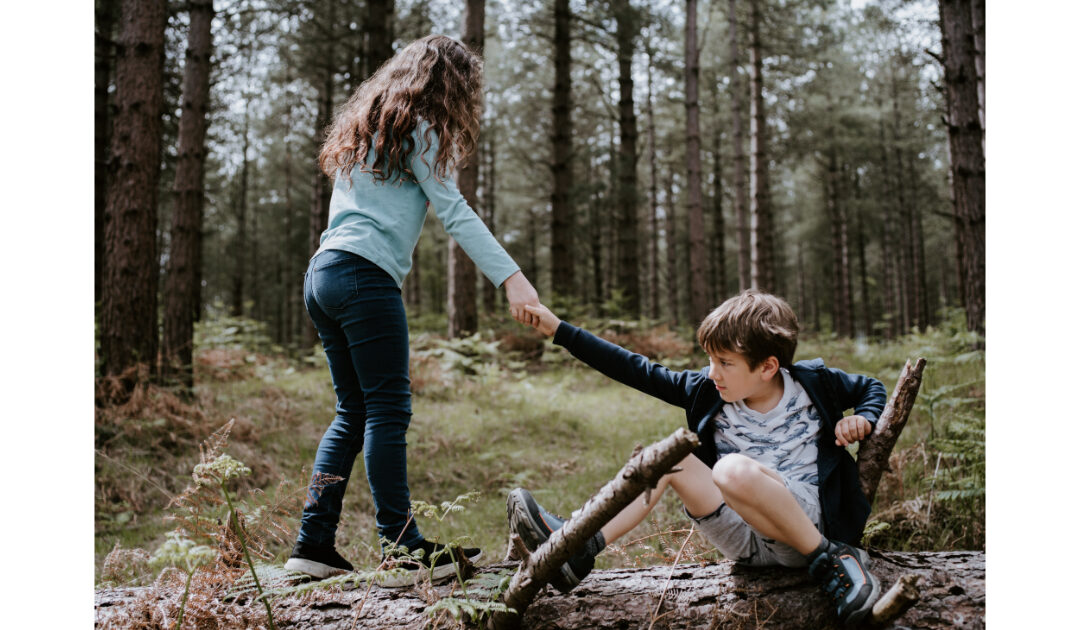I recently watched the movie “A Beautiful Day in the Neighborhood,” based on the true story of friendship between Fred Rogers and journalist Tom Junod. Tom is indignant that he has been assigned to interview Mr. Rogers, whom he views as an insignificant and not newsworthy character, but he is surprised to find himself drawn to the empathy, acceptance, and kindness this television show host displays to everyone he comes in contact with. In an exchange that is very timely for today, Fred tells Tom, “When I was a boy and I would see scary things in the news, my mother would say to me, ‘Look for the helpers. You will always find people who are helping.’”
The news is currently full of very “scary things.” It is easy to get discouraged, overwhelmed, frightened, and even panicky about the ongoing stream of grim stories concerning rising infection and death rates and people losing livelihoods and loved ones. These statistics are scary and it is normal to feel anxious about them. However, a crisis like the pandemic also presents an opportunity for people to grow in unexpected ways. Many have shared heart-warming stories with me about giving some or all of their stimulus money to those in greater need, or discovering previously unknown skills for sewing facemasks, or a talent for organizing online scavenger hunts for bored grandchildren, or for tutoring reading online to struggling students. Helping others helps us. Neural evidence from fMRI’s research studies suggests a link between generosity and happiness in the brain. When we help someone else, the same feel-good chemicals are released in our brain that are being released in the brain and body of the one we are helping.
My father certainly needed a helper when he was being held in solitary confinement in a German prison during World War II. Sometimes help comes in unexpected ways, as it did for him when his parents and the families of the other imprisoned boys who tried to escape with him from the labor camp to join the Allied Army, hired a rather famous Dutch attorney named Fritz to plead their sons’ cases before the Reichsgericht (the criminal court of the German Reich). Fritz represented himself as a Nazi sympathizer to the German court in order to win the boys a reprieve from their death sentence and then had to go into hiding himself to escape his own prosecution once the ruse became known. (Upon their release, the boys were taken to another labor camp much further inland presumably to prevent them from once again trying to swim the Rhine River to freedom.)
We may already be drowning in “helping” as parents or caregivers who are attempting to homeschool children, work from home, navigate the frustrations of attempting to apply for small business loans or payroll protection or other resources to stay afloat financially (and emotionally!) We may need help from others rather than being in a position to offer help right now. It is not weak or needy to ask for support from others it is human. And if you find yourself in moments when that support is not forthcoming from the relationships you usually turn to (because they are overwhelmed too), the following resources might help in a pinch:
The National Alliance on Mental Illness has an Instagram account: “namicommunicate” which posts helpful tips, reminders, and resources
The “Calm” app offers meditation and sleep stories to help with the bedtime routine
Even non-yoga aficionados find Yoga with Adriene accessible and soothing.
Dr. Dan Siegel’s wheel of awareness and free guided meditations are available.
Natural Lifemanship is offering a variety of name your price workshops to support you during this time and help to build YOUR resilience.
Natural Lifemanship is also offering a variety of resources daily on Facebook and a FB live series called Resilience Through Rhythm every Sunday. Connect with us on Facebook where we are committed to collective healing.
A global crisis like the coronavirus pandemic can overshadow our reality to the point where we no longer find hope in the darkness. My father told me there were times he wasn’t sure he would ever leave that dark, damp prison cell. My faith reminds me that “the light shines in the darkness and the darkness cannot overcome it.” We can take turns being that light for each other.
Here at The Natural Lifemanship Institute, we are here for you, just as you are there for so many who turn to you for support. And when you need some support for yourself: keep looking for the helpers. They are out there.
Kathleen Choe is a licensed professional counselor and practices in the Austin, Texas area. More info can be found here. She is also a member of the NL team, and a Natural Lifemanship trainer.



Recent Comments